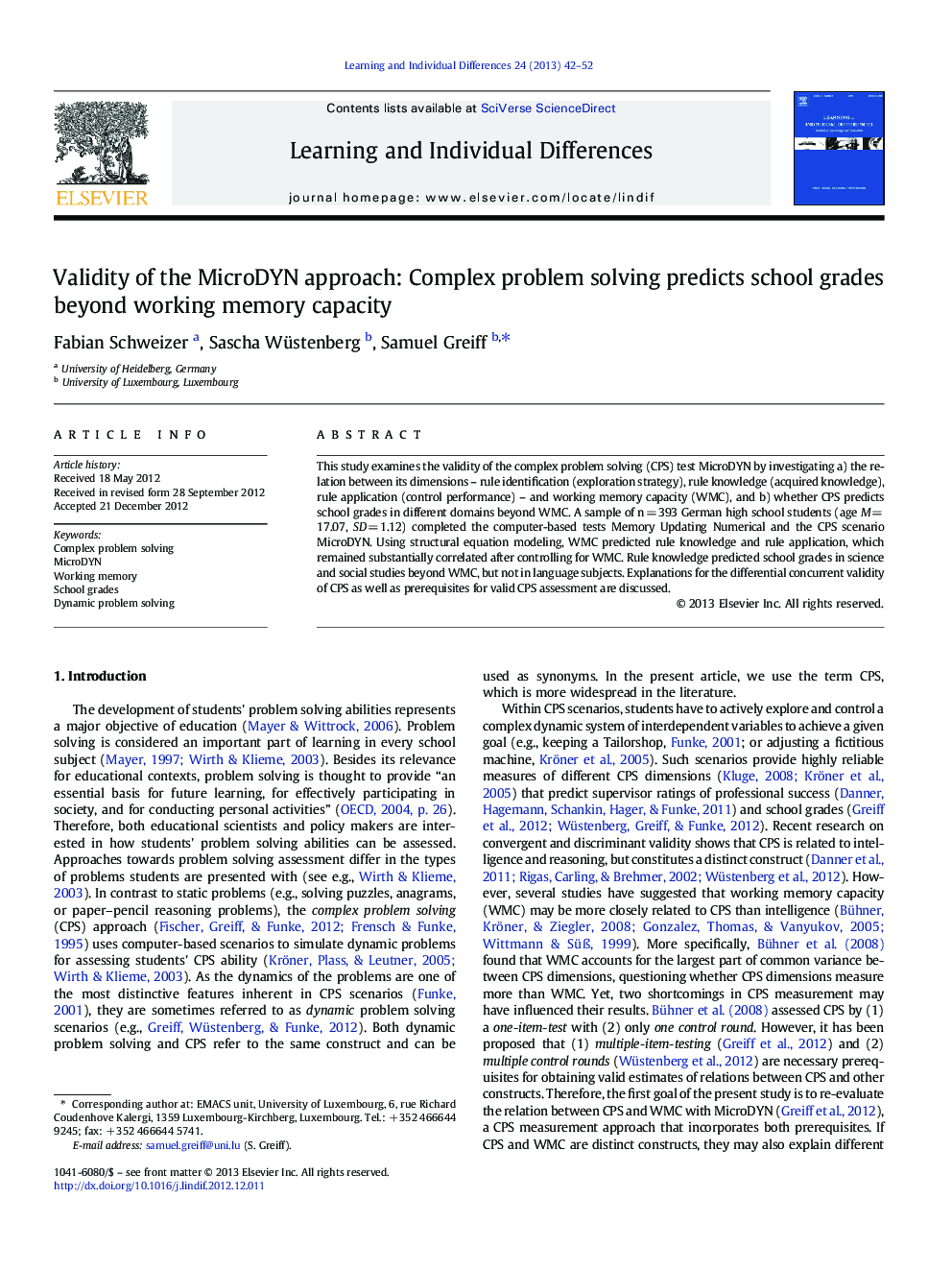| Article ID | Journal | Published Year | Pages | File Type |
|---|---|---|---|---|
| 364909 | Learning and Individual Differences | 2013 | 11 Pages |
This study examines the validity of the complex problem solving (CPS) test MicroDYN by investigating a) the relation between its dimensions – rule identification (exploration strategy), rule knowledge (acquired knowledge), rule application (control performance) – and working memory capacity (WMC), and b) whether CPS predicts school grades in different domains beyond WMC. A sample of n = 393 German high school students (age M = 17.07, SD = 1.12) completed the computer-based tests Memory Updating Numerical and the CPS scenario MicroDYN. Using structural equation modeling, WMC predicted rule knowledge and rule application, which remained substantially correlated after controlling for WMC. Rule knowledge predicted school grades in science and social studies beyond WMC, but not in language subjects. Explanations for the differential concurrent validity of CPS as well as prerequisites for valid CPS assessment are discussed.
► Examined relation between complex problem solving, working memory, and school grades ► Complex problem solving (CPS) was assessed by a multiple item approach with multiple control rounds. ► CPS dimensions rule knowledge and rule application shared variance beyond working memory. ► Rule knowledge explained 17% of variance in science grades and 6% in social studies grades. ► Rule knowledge explained grades in science and social studies beyond working memory.
